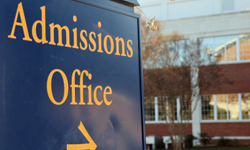College Admissions Put Too Much Pressure To Do Extracurriculars

by Hena Hussain ‘20
Many students at Sherwood are involved in some sort of extracurricular activity, from honor societies to community service organizations. While seemingly providing students with ways to expand on their interests and hobbies, extracurriculars can end up being treated as simply another step in the college application process by many high schoolers.
Colleges look for students with high grades and standardized test scores, but with higher numbers of students applying for college, the selection process has become far more competitive and demands higher effort from high school students. Regarding the newly admitted Harvard class of 2021, 309,506 students applied but only 2,037 were accepted according to the university’s admission statistics.
This trend applies to not only Ivy League schools but to many schools that Sherwood students tend to apply to. For example, the University of Maryland’s website states that this year the school received almost 34,000 applications for a class of 4,075, and according to U.S. News, American University in Washington, D.C. also has a low acceptance rate of 26 percent.
This selectiveness forces students to attempt an image of perfection which includes success in academics, showing an interest in other activities to appear “well rounded” and “display leadership skills.” The same policy of doing things to get into college applies to community service; many students feel the need to go above and beyond the graduation requirement of 75 SSL hours in to appear favorable to schools.
These expectations create circumstances in which students’ motivation for participating in such projects lies not in giving back to the community or exploring their interests, but in gaining one more line of experience on their applications. Colleges should not make extensive efforts to encourage students to join extracurriculars, and instead accept students based on their schoolwork and test scores, which already show a student’s dedication and qualifications by requiring a large amount of effort on the student’s part. Treating extracurriculars as anything more than indicators of a student’s interests have and will continue to promote a superficial approach to the application process by causing students to join activities in the interest of gaining acceptance rather than following their passions.